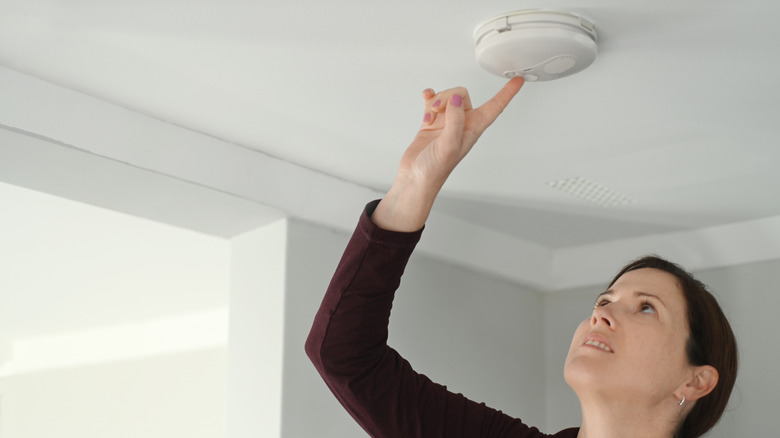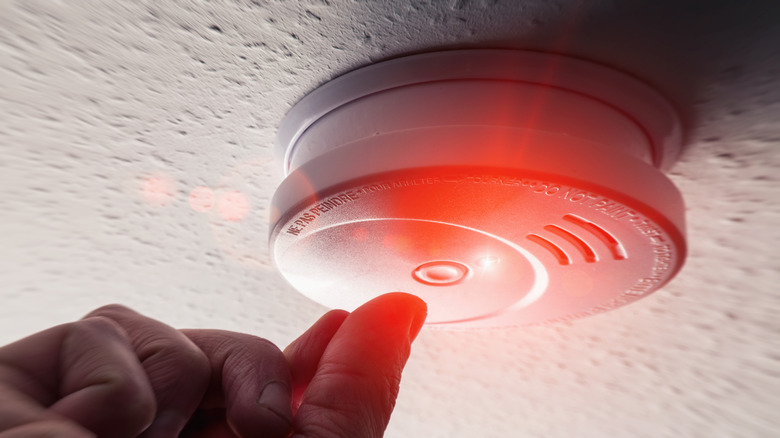Home » Health News »
This Is Why You Should Always Have These Monitors In Your Home

While you may do many things to keep your home and everyone in it safe and secure, from keeping doors locked to installing security cameras, there are few things you should always have in your home to ensure your loved ones’ health and wellbeing: smoke detectors, carbon monoxide detectors, and a radon detector.
Depending on the state, there may or may not be laws requiring landlords and homeowners to keep these types of detection devices up to date and working inside every home, but whether or not it is required by law, it is something you should absolutely be doing (via Kiddie).
While most folks always have a smoke detector because fire is well understood to be a danger, keeping the battery current (especially when the beeping gets annoying) isn’t always a priority, and sometimes people disable them entirely. You should never do this, as, sadly, nearly 4,000 people per year die in home fires in the U.S. (via SFFire.org).
Carbon monoxide is much harder to detect than smoke and is terribly dangerous. According to the CDC, each year in the U.S., roughly 50,000 people seek emergency medical care due to accidental carbon monoxide poisoning, and sadly, about 430 people die each year due to this often-preventable poisoning. Carbon monoxide is colorless and odorless and can leak into the home from several different sources from gas leaks to faulty heating systems. Therefore, an up-to-date carbon monoxide detector should always be in your house.
Why you need a radon detector

According to the government of Connecticut, radon, another colorless and odorless gas, is responsible for more than 21,000 lung cancer deaths annually in the U.S. In fact, it is the leading cause of lung cancer in non-smokers. For those unfamiliar with what radon is, it is a naturally-occurring radioactive gas that is released when uranium decays. It is found in soil, rock, and water.
While this means that the gas generally originates outside the home rather than inside like carbon monoxide or fire/smoke, it still has direct effect on humans living inside homes that are near or on top of water ways, rock, and soil that emits radon. Testing is simple and it is recommended that it be done in winter for the most accurate reading. Some states, like Connecticut, subsidize testing kits to residents, although acquiring a detector or kit is inexpensive and simple.
If an online search to buy one doesn’t interest you, contacting your local government is a good idea, as they likely will have information as to whether and how your state or town may subsidize testing.
Source: Read Full Article



